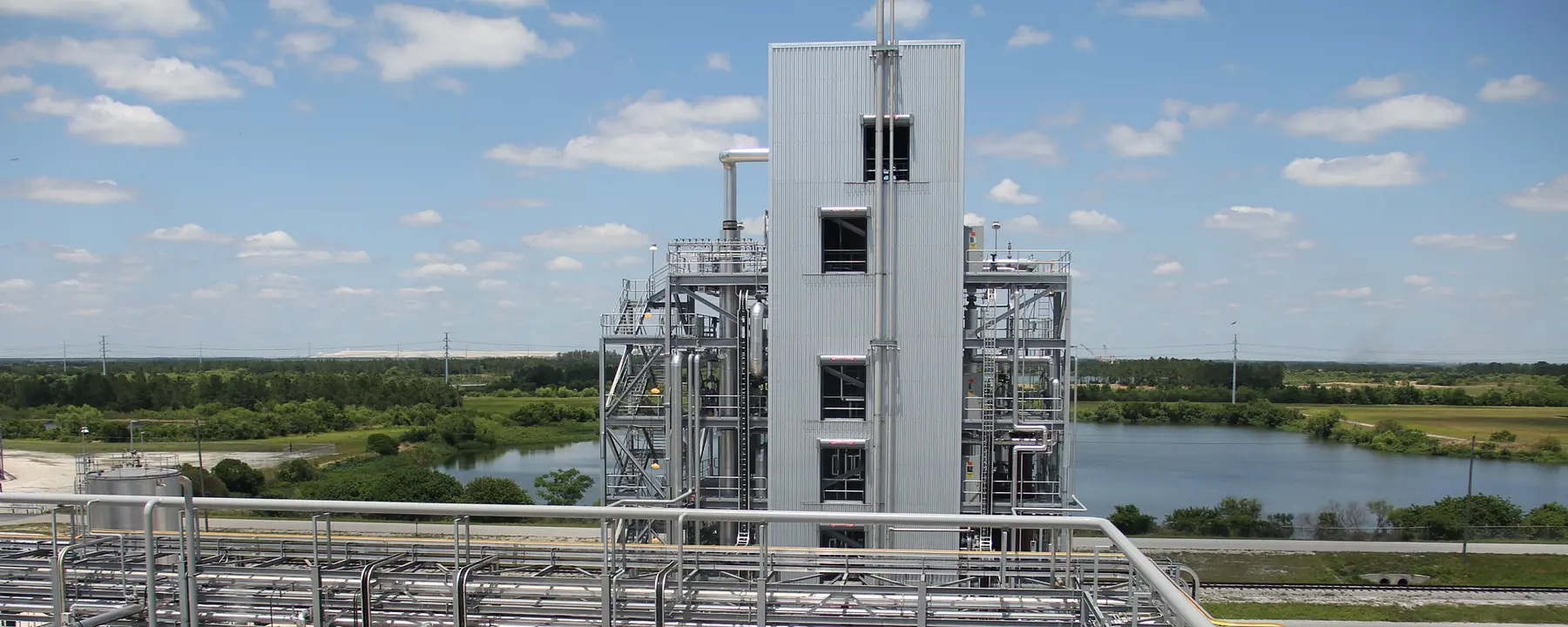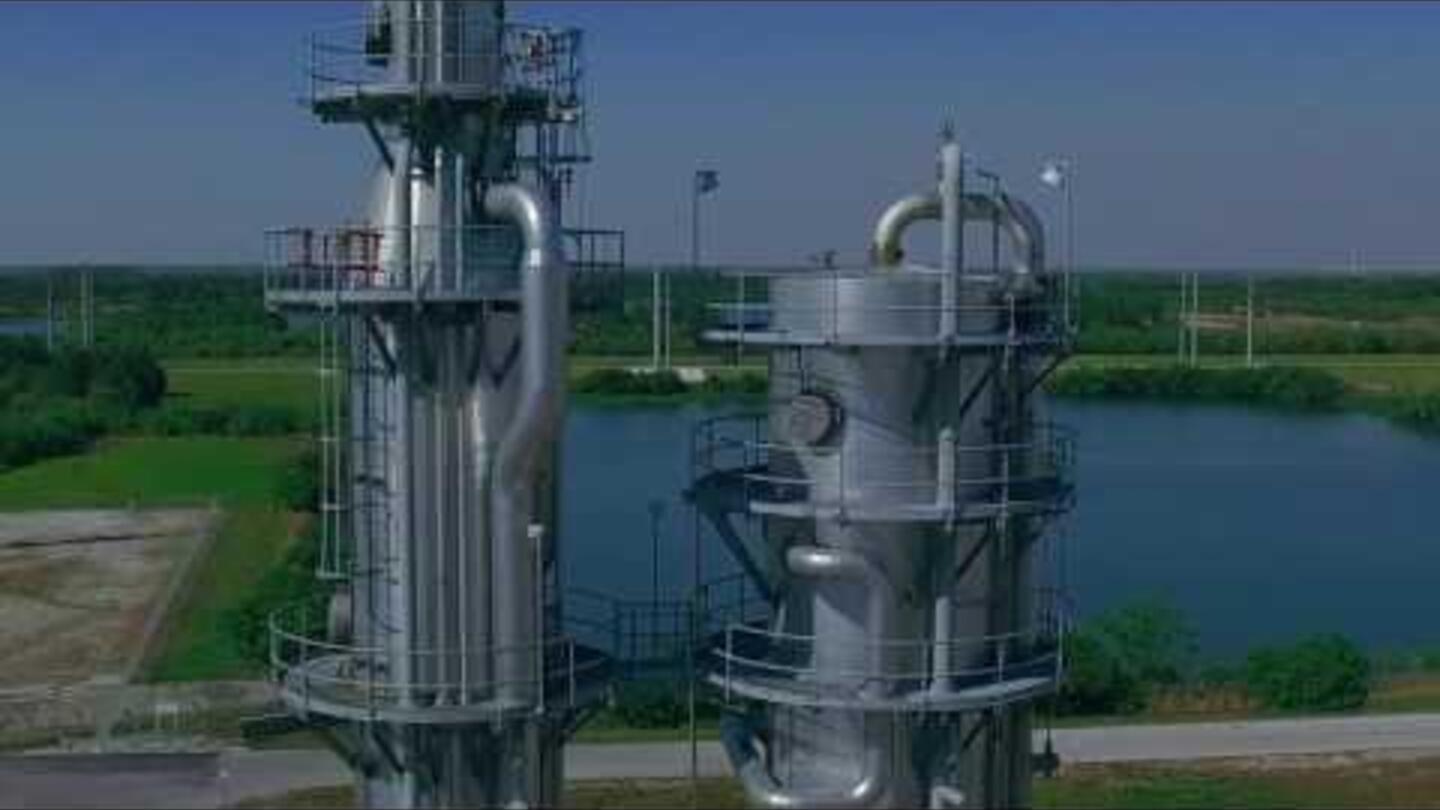Cleaning syngas at lower cost and higher efficiency for commercial applications
Traditionally, cleaning syngas has involved the need for substantial subambient gas cooling and complex heat recovery systems in an effort to curb the release of carbon dioxide, sulfur, and other contaminants into the atmosphere. Existing standalone conventional technologies such as Rectisol® and Selexol™ have proved to be too expensive or incapable of working in some key applications and suffer from inherent process inefficiencies and high capital and operating costs.
If the syngas stream could be cleaned at warm temperatures, then the overall process efficiency would improve substantially and capital and operating costs for subambient cooling and complex heat recovery systems could be significantly reduced or eliminated. However, the rigorous requirements to develop and demonstrate a viable warm syngas cleanup technology that has high removal capacity, is regenerable with low energy penalty, and is low cost have presented formidable barriers.
Our deep understanding of commercial and emerging gasification processes; expertise in fluidized and transport reactor systems; and capabilities in advanced materials development have allowed us to address the challenge of cleaning syngas.
Employing Unique, Differentiated Warm-Temperature, Solid Sorbent–Based Technology to Pursue Thermal Efficiency Improvements
Our warm gas desulfurization (WDP) technology was developed using a novel pressurized dual transport-bed reactor design and a proprietary attrition-resistant, high-capacity, regenerable solid sorbent. WDP is capable of removing up to 99.9 percent of the total sulfur contaminants directly from raw syngas at gasifier pressure and warm process temperature (250–650°C).
By cleaning high-sulfur gas streams at elevated temperatures, this technology can reduce the capital and operating costs of the entire gas cleanup block by as much as 50 percent or more compared to conventional cleanup technologies. The WDP technology also has the potential to integrate with most carbon capture technologies to meet syngas purities for ultra-clean power generation in a host of applications.
Driven by U.S. Department of Energy (DOE) goals to produce low-cost, high-efficiency clean energy, our team received a DOE award in 2010 to conduct pre-commercial scale testing of our WDP technology following over 3,000 hours of successful pilot testing on actual coal-based syngas at Eastman Chemical Company. Tampa Electric Company’s Polk 1 integrated gasification combined cycle (IGCC) was selected as the host site for this pre-commercial testing.
The pre-commercial test unit was sized to clean a 20 percent (50-MWe) slipstream of the total syngas from the Polk 1 gasifier (~60,000 Nm3/hour of syngas) and included our advanced water-gas-shift (WGS) technology, which reduced steam consumption by almost half at lower capital cost, and an activated amine process for 90+% overall carbon capture.
Improving Efficiency and Reducing Costs for Syngas Cleanup for Power Generation, Chemicals, and Fuels
We successfully completed more than 3,500 hours of pre-commercial scale testing at the Tampa Electric site in April 2016, replicating previous lab- and pilot-scale performance. Our WDP technology has now been demonstrated to achieve up to 99.9-percent removal of total sulfur from syngas at temperatures as high as 650°C and over a wide range of sulfur concentrations and pressures (pressure-independent performance).
The integration of WDP with a downstream activated amine carbon capture process allowed for further reduction of total sulfur in the syngas to sub-ppmv concentrations (as low as 0.1 ppmv, up to 99.999-percent total sulfur removal). Slip-stream testing of the final cleaned syngas using Fischer-Tropsch and methanol catalysts showed no significant catalyst deactivation from residual contaminants after several hundred hours of exposure.
Our WDP technology provides demonstrated advantages to conventional technology solutions, simultaneously offering lower capital costs (20–50 percent less); lower non-labor, non-feedstock operating costs (up to 30–50 percent less); and higher overall process efficiencies (up to 10-percent more). By decoupling sulfur removal and carbon capture, this technology offers enhanced design flexibility and enables a capable and economic syngas cleanup option for essentially all applications.
Being able to replicate process performance through pre-commercial scale has now positioned WDP to dramatically impact the landscape of syngas cleanup. Now that the testing program has been concluded and critical data has been collected, we are teaming with industrial partners to offer the WDP technology and sorbent commercially.
- U.S. Department of Energy (DOE)

